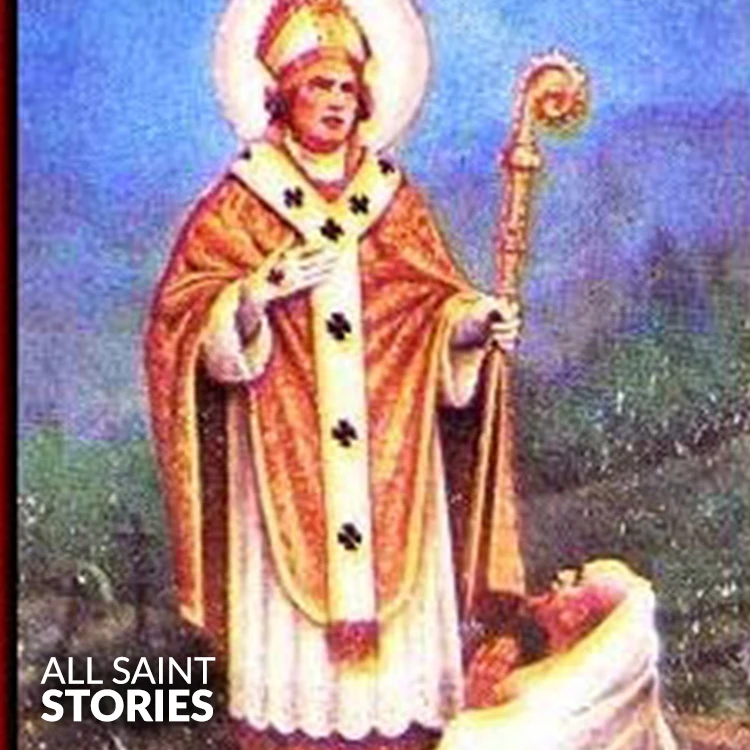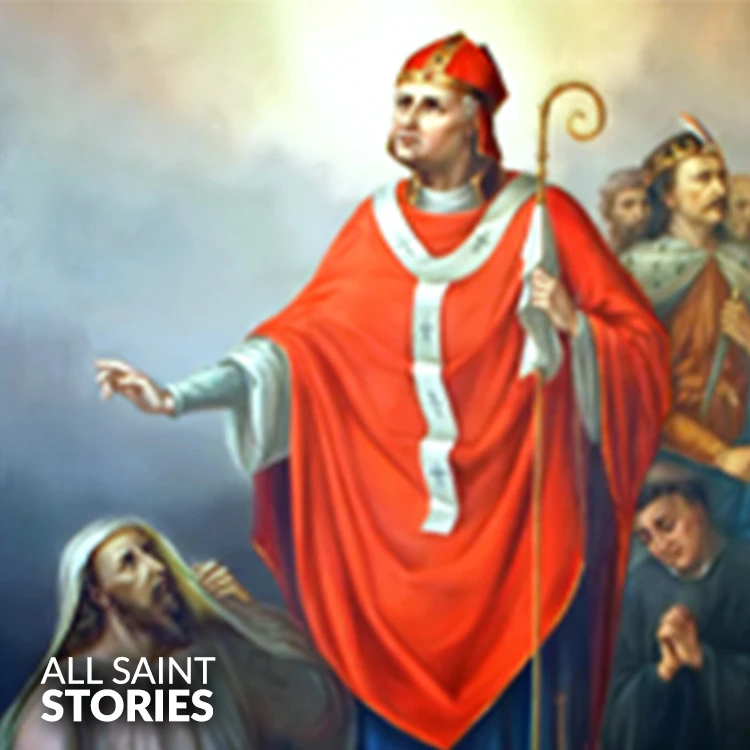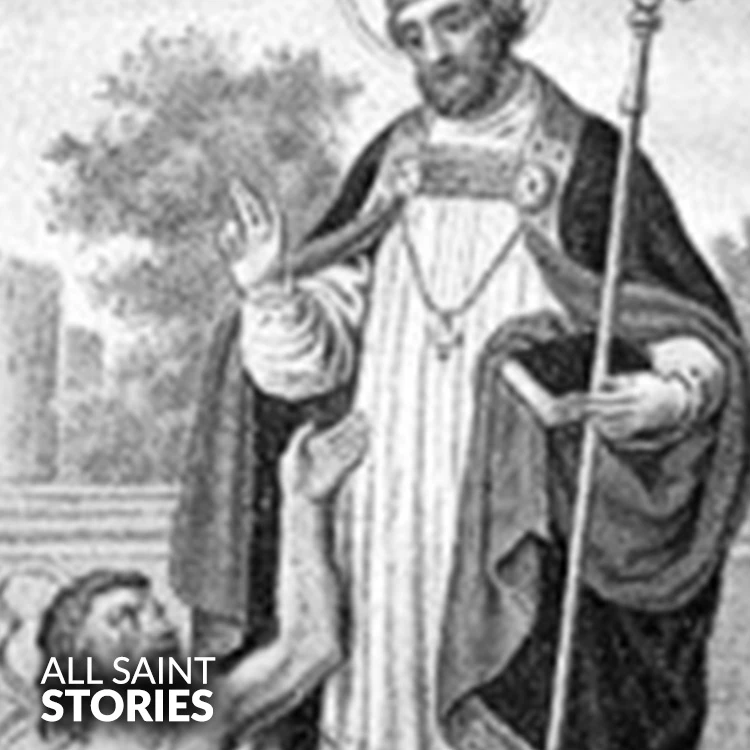"Father, to honor you, Saint Stanislaus faced martyrdom with courage. Keep us strong and loyal in our faith until death. Through our Lord Jesus Christ, your Son, who lives and reigns with you in the unity of the Holy Spirit, one God, for ever and ever. Amen."
ST. STANISLUS OF CRACOW
ST. STANISLUS OF CRACOW

Saint Stanislaus of Cracow, born on July 26, 1030, in Szczepanów, Poland, was a bishop and martyr who opposed King Boleslaus II's tyranny. He was executed on May 8, 1079, during Mass. Canonized in 1253, he is the patron saint of Poland and Cracow
Saint Stanislaus of Cracow, also known as Stanislaus Szczepanowski, was born on July 26, 1030, in Szczepanów, Poland. He hailed from a noble family and received a religious education in the cathedral schools of Gniezno and possibly in Paris. Ordained a priest, he served as a canon and preacher at the cathedral in Kraków, gaining a reputation for his eloquent sermons and commitment to reforming the clergy.
The murder of Saint Stanislaus provoked widespread outrage. The king was forced to flee to Hungary, and Poland was placed under an interdict by Pope Gregory VII. Stanislaus was canonized in 1253 by Pope Innocent IV. His feast day is celebrated on April 11 in the universal Church, while in Poland, it is observed on May 8, the anniversary of his death.
Saint Stanislaus is revered as a symbol of moral integrity and courage in the face of tyranny. His martyrdom is commemorated annually in Kraków with a solemn procession from Wawel Cathedral to the Church of Skałka, where he was killed. This tradition began in 1254 and continues to this day, drawing pilgrims and dignitaries from across Poland.
Pope Francis has invoked Saint Stanislaus' intercession for peace in Europe and the world, highlighting his enduring influence and the relevance of his example in contemporary times. Saint Stanislaus' life and martyrdom underscore the importance of standing firm in one's convictions and the enduring power of faith and moral leadership.
Video Not Found
The information on this website is compiled from various trusted sources. While we aim for accuracy, some details may be incomplete or contain discrepancies.
If you notice any errors or have additional information about this saint, please use the form on the left to share your suggestions. Your input helps us improve and maintain reliable content for everyone.
All submissions are reviewed carefully, and your personal details will remain confidential. Thank you for contributing to the accuracy and value of this resource.
Credits & Acknowledgments
- Anudina Visudhar (Malayalam) – Life of Saints for Everyday
by Msgr. Thomas Moothedan, M.A., D.D. - Saint Companions for Each Day
by A. J. M. Mausolfe & J. K. Mausolfe - US Catholic (Faith in Real Life) – Informational articles
- Wikipedia – General reference content and images
- Anastpaul.com – Saint images and reflections
- Pravachaka Sabdam (Malayalam) – Saint-related content and insights
We sincerely thank these authors and platforms for their valuable contributions. If we have unintentionally missed any attribution, please notify us, and we will make the correction promptly.
If you have any suggestion about ST. STANISLUS OF CRACOW
Your suggestion will help improve the information about this saint. Your details will not be disclosed anywhere.
© 2026 Copyright @ www.allsaintstories.com




 English
English
 Italian
Italian
 French
French
 Spanish
Spanish
 Malayalam
Malayalam
 Russian
Russian
 Korean
Korean
 Sinhala
Sinhala
 Japanese
Japanese
 Arabic
Arabic
 Portuguese
Portuguese
 Bantu
Bantu
 Greek
Greek
 German
German
 Dutch
Dutch
 Filipino
Filipino